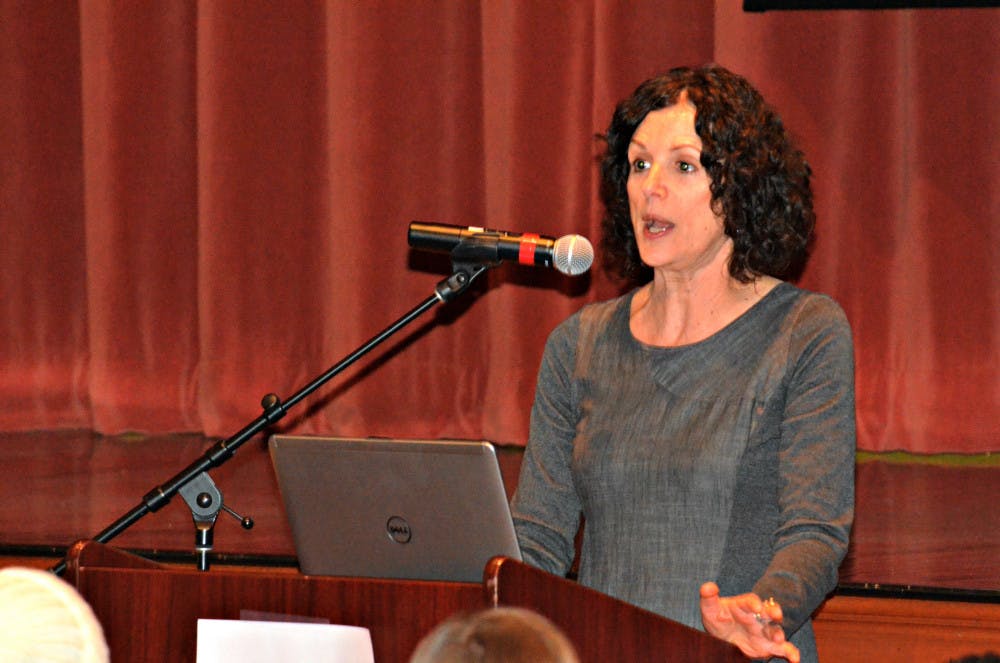Dr. Robin DiAngelo, an education professor at Westfield State University in Massachusetts, delivered the third annual JusTalks keynote address in Wilson Hall on Wednesday, Jan. 7. Entitled “What Does it Mean to be White? Developing White Racial Literacy,” and based on her book with the same title, DiAngelo hoped to primarily “speak directly to the white folks in the room” as a fellow white person, to define terminology for those new to discussing race, to illuminate how white privilege operates in American society and to ultimately undermine ideas we hold about racism.
To do this work, DiAngelo used pop culture references, humor, anecdotes from her own work, own students and numerous images. She looked at how racial stratification plays out on multiple levels, from white people living in largely segregated spaces to thinking about who we view as racists. She asked the audience to ask each other tough questions—to try and shed the common beliefs that racism only occurs in specific incidents or is only perpetuated by “bad” people.
At the same time, DiAngelo was explicit about the limitations of her knowledge, asking people of color in the room to hold her accountable and lend another lens on experiences of whiteness if they felt comfortable doing so.
Although JusTalks’ programming has extended from its J-Term events and into the First-Year Seminars with their discussion sections, as a JusTalks organizer, I can attest to the fact that our work in J-Term is currently the centerpiece of this student initiative. The keynote address kicks off the week and gives participants some insights on the larger societal issues that relate to the various social identities they will discuss that weekend. The past two JusTalks keynote speakers were Brown University professor Dr. Tricia Rose and famed civil rights activist Dr. Angela Davis. Like the women before her, DiAngelo also reflected on societal issues and gave an especially timely lecture.
“In light of the recent events in Ferguson and elsewhere, I felt that we needed to bring a speaker to campus that would be able to speak specifically on race,” said Klaudia Wojciechowska ‘17, a fellow JusTalks organizer. The organizers came across her work in the fall while training their facilitators for the First-Year Seminar program.
“More specifically, Dr. DiAngelo’s work focuses on white racial literacy, and I felt that a talk such as hers was needed here at Middlebury,” she said. “There seems to be a wide spectrum of how white students on campus understand race relations, or if they do at all. A speaker such as Dr. DiAngelo would help students who’ve never talked about these issues before start that dialogue.”
Students who attended the talk agreed, posing questions to strategize ways to bring conversations on whiteness into other spaces, and pondered ways to combat their own racial privilege.
“I came here because mainly as an international student and there’s definitely a different dynamic and conversation around race,” said Kirsten MacNeill ’18, a first-year from Canada. “So I came here mostly to understand the differences and the dynamic that exists in the States.”
“The talk shed some light on dynamics that may exist even in my home country, so it was good for me to think about. I’m really glad I came.”
Third JusTalks Keynote Tackles Whiteness

Comments


